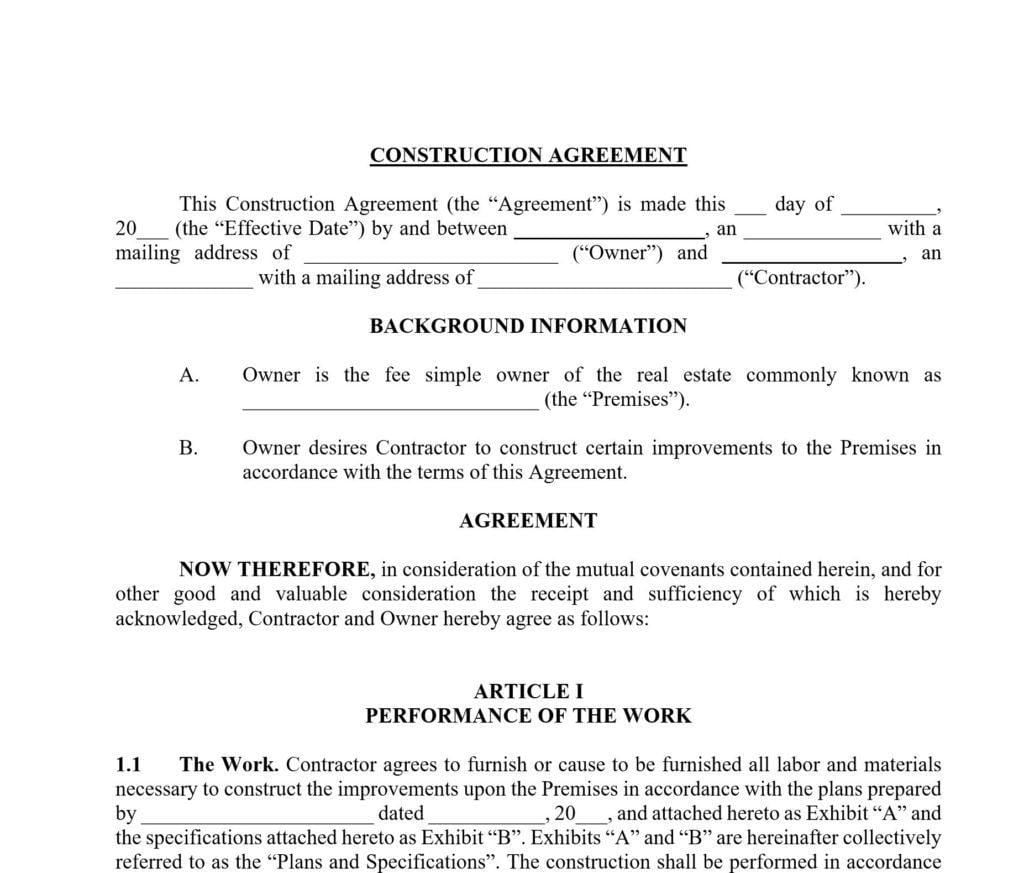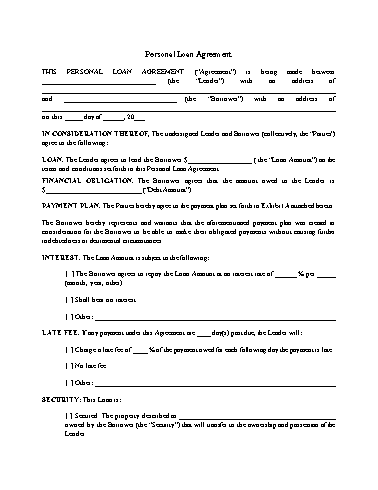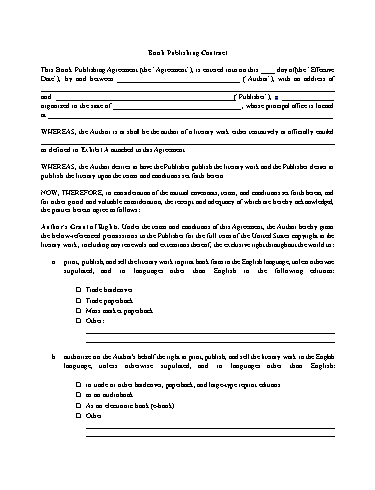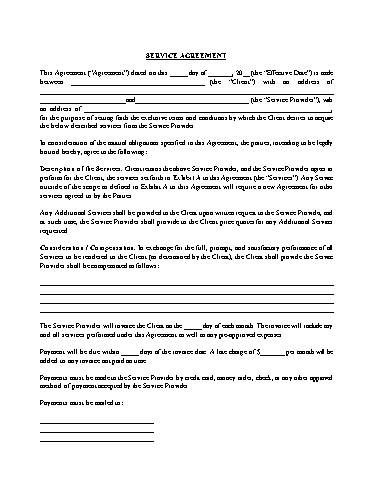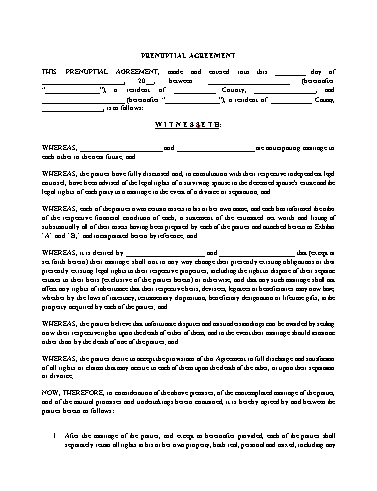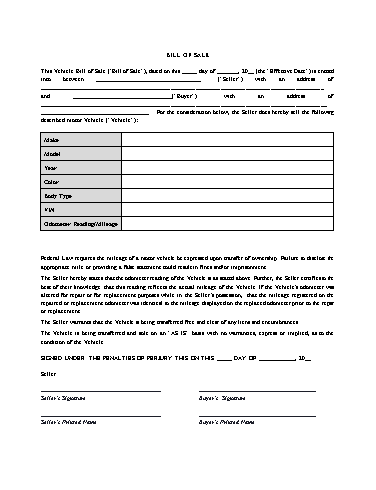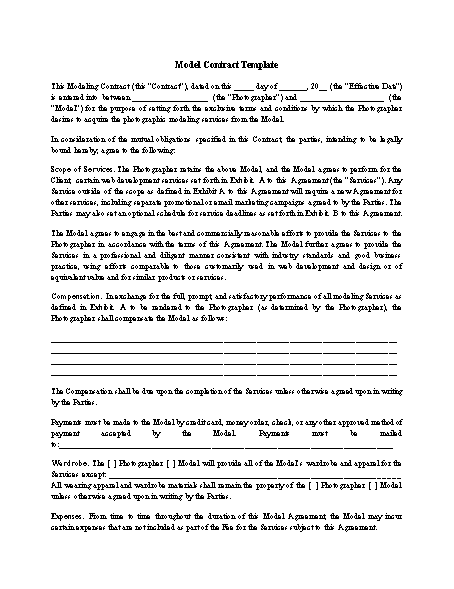Why Do I need a Construction Contract?
At the most basic level, you want to get the house that was promised, and the contractor wants to get paid for the house being built. The contract serves to reflect this understanding, to make sure there is no disagreement before the actual works begins, and to provide a guide to follow in case a problem arises later. Most often your contractor will provide you with a contract that’s ready for signing. If not, you may draft one or hire an attorney to draft one (never go forward without a contract!). The contract in its original form may have very few terms with very few details, or it may be so detailed and filled with complicated terms that it is hard to understand. Neither of those situations are acceptable. To fully protect your rights, the contract terms should be complete, specific, and easy to understand. Unfortunately, many general contractors use their own form of construction contract. These forms are generally inadequate. They are often one-sided and-equally significant-poorly written, usually due to modifications made over many years of use.
Commonly Disputed Issues in Construction Contracts
Below is a list of issues that are commonly disputed in residential construction projects. If these items are not covered in your contract, be sure to add them. If they are already included, review them carefully to make sure they sufficiently protect your rights.
Scope of Work
This section describes the work that the contractor agrees to perform. This work typically includes obtaining municipal or other permits, and furnishing the labor, equipment, materials, and other services necessary to complete the house. This section also requires the contractor to conform the work to the house’s plans (drawings) and specifications, which should be attached and made a part of the contract. Sometimes, even when contract documents are drafted carefully, they contain conflicting terms in the plans, specifications, and/or the written contract. This conflict can lead to confusion and disputes. For example, if the plans depict a master bathroom with one sink, but the specifications call for two sinks, which is correct? Consider specifying that, in case of conflict between the plans and specifications, the specifications will control. And, in all cases of conflict, the contract should be the controlling document. Although you may assume it is implied, you’d be wise to make sure the contract includes a statement saying that the contractor must complete the work in a good and workmanlike manner in accordance with all applicable laws. That way, if you have an issue with the contractor’s performance, you can point to an explicit contract provision that the contractor breached, and rely on this to pursue legal action.
Timing of the Work / Contract Time
You’ve probably heard horror stories about building projects going off schedule. How do you protect yourself against this? Make sure the contact contains information about when construction will begin, the schedule of work the contractor must follow, and when construction will end (in other words, when can you move in). Extensions of time may be granted for delays caused by:
- poor weather or other “acts of God”
- labor strikes
- payment delays caused by the owner
- inspection delays caused by the municipality
- changes or additions to scope of work agreed to by both parties, and
- other issues that are beyond the reasonable control of the contractor.
While the contractor may be hesitant to agree to it, consider including a provision for liquidated damages. Basically, this provision states that for every day the contractor works beyond the completion date (subject to the exceptions listed above), the contractor will be charged a certain amount. For example, if the completion date set forth in the contract is May 1, and construction is not complete by that date, the contractor would be required to pay the owner a per diem amount for each additional day of construction. Such liquidated damage provisions protect the owner from delay, and are an incentive for the contractor to complete work in a timely manner. In most states, to be enforceable, the per diem amount specified must be a fair estimation of actual damages the owner might incur and cannot have been actually known at the time the contract was made. This provision is not meant to be a punishment, but compensation to cover costs that the owner will incur due to the delay. These might include costs to store your furniture or costs to rent an apartment during the period of delay.
Payment
This section should clearly indicate what, when, and how the owner will pay the contractor. Because the contractor will likely be relying on payments from the owner to fund the construction, the payment schedule must provide a steady stream of money so that the house may be built in a timely manner. A typical contract will require an initial payment prior to construction. Then, on a regular basis thereafter, the contractor will submit an application for payment to the owner indicating the amount of work completed during that cycle. It is less common for there to be a lump sum contract where the entire amount is paid in one lump sum for the project, either up front or at the completion. The contractor should also submit to the owner signed “mechanic’s lien” releases or waivers, from subcontractors who have provided labor or materials. A subcontractor has a mechanic’s lien, which is an interest in the property, until he or she has been paid by the contractor for the work or materials provided. So, mechanic’s lien releases or waivers provide assurances to the owner that the subcontractor has been paid by the contractor. Though every state has mechanic’s lien laws, the laws vary. Consider consulting a professional concerning your state’s laws. Often, the final payment on a project is tied to “substantial completion.” The contract might say, for example, that final payment is due 15 days after the house has been substantially completed. This is not problematic so long as “substantial completion” is defined appropriately in the contract. In some cases there can be a guaranteed maximum price implemented in the agreement, where fees and costs shall not exceed a set figure, pending changes to the agreement and unforeseen issues during the project. This helps give the party contracting the construction group some peace of mind that there is a cost ceiling. In some states, the law defines “substantial completion” as the time when the work is complete enough so that the owner can occupy or use the home for its intended purpose. As you will actually be living in the home, you probably do not want the disturbance of much follow-up work. Therefore, consider defining substantial completion in the contract narrowly by listing specific items, or restricting work after substantial completion to minor repairs. Or, if major items remain, the owner should be permitted to withhold payment in an amount to cover such repairs.
Changes to Scope of Work
Sometimes, after construction has begun, the scope of work changes. This could be due to the owner’s decision (let’s add a built-in bookshelf there!), a requirement from the permitting authorities, or the discovery of an unknown property condition affecting construction. The contract should account for the possibility of such changes by requiring written work orders to reflect changes in the scope of work. Never just tell the contractor, “Sure, go ahead with our new plan,” without creating a written work order that both you and the contractor sign. To do otherwise would open the door to additional unanticipated expenses.
Warranty
Although not required in all states, many contracts contain express warranties, describing what types of defects the contractor will take care of later, how long the warranty lasts, your maintenance obligations, and what the contractor is required to do to fix the defects. If your contract contains an express warranty, read it carefully and negotiate the terms if necessary. If your contract does not contain an express warranty, consider adding one to the contract. If your contract does contain a warranty, it may also limit or waive implied warranties, such as an implied warranty of fitness for a particular purpose or an implied warranty of workmanlike construction (available implied warranties vary by state). While most states recognize the right to limit or waive these warranties, courts have refused enforcement of these waivers unless it is obvious to the court that the owner specifically agreed to the waivers. The contractor is not permitted to include the waivers in the “small print” or buried within the legalese of the contract. If possible, do not agree to a waiver of implied warranties, as it will limit your rights to sue in the event of a later dispute.
Dispute Resolution
No matter how careful you are in drafting the contract or how friendly you are with the contractor, a dispute may arise. It is common for construction contracts to require binding arbitration rather than litigation in a court if there is a dispute. If the contract requires arbitration, you may not sue the contractor. Instead, you must submit a complaint to an arbitrator – an expert in the construction industry who will listen to both sides of the dispute and issue a binding decision resolving the issue. The arbitrator will conduct a hearing where both sides will have an opportunity to present their position on the issue. The hearing will be conducted similar to a court trial. At the conclusion of the hearing, the arbitrator will issue a final decision. There are advantages to using arbitration, as it is typically less expensive and less formal than a court trial. Also, you will likely have control over the selection of the arbitrator. However, you waive your right to a trial, and unlike a court trial, neither party may appeal the decision. There is no wrong decision when it comes to selecting arbitration or litigation, so long as you understand your rights and limitations.
Attorneys’ Fees
Consider including a provision in the contract concerning which party pays attorneys’ fees in the case of a dispute. In some states, the successful party cannot recover attorneys’ fees unless this was specifically provided for in the contract.
Contractor Default Provision
Many standard contracts contain information on what constitutes breach of contract and how you can assert your rights. If not, you should include a specific provision that addresses contractor default. It is reasonable to allow the contractor a set amount of time to fix or “cure” a problem. In case the contractor does not then fix the issue you can, in order to make sure the construction gets completed, add a provision allowing you to hire another contractor. You should also have the right to suspend work or terminate your contract with the contractor in case of default. Below we’ve provided a free construction contract template for you to use, and ideally to work with a legal professional to get legal advice on to ensure it suits your needs and protects both parties.
Your Signing experience is worth celebrating!
ApproveMe is easy document signing for busy people. Built on the belief that every new agreement with a customer or client should be celebrated.

SAMPLE CONSTRUCTION CONTRACT AGREEMENT This Construction Agreement (the “Agreement”) is made this ___ day of _________, 20___ (the “Effective Date”) by and between __________________, an _____________ with a mailing address of ________________________ (“Owner”) and _________________, an _____________ with a mailing address of ________________________ (“Contractor”). BACKGROUND INFORMATION A. Owner is the fee simple owner of the real estate commonly known as ____________________________ (the “Premises”). B. Owner desires Contractor to construct certain improvements to the Premises in accordance with the terms of this Agreement. AGREEMENT NOW THEREFORE, in consideration of the mutual covenants contained herein, and for other good and valuable consideration the receipt and sufficiency of which is hereby acknowledged, Contractor and Owner hereby agree as follows: ARTICLE I PERFORMANCE OF THE WORK 1.1 The Work. Contractor agrees to furnish or cause to be furnished all labor and materials necessary to construct the improvements upon the Premises in accordance with the plans prepared by ______________________ dated ___________, 20___, and attached hereto as Exhibit “A” and the specifications attached hereto as Exhibit “B”. Exhibits “A” and “B” are hereinafter collectively referred to as the “Plans and Specifications”. The construction shall be performed in accordance with the Plans and Specifications (except as to minor deviations permitted pursuant to 1.5 of this Section) which Plans and Specifications have been examined and approved by Owner. The construction undertaking as described in this Section is hereinafter sometimes referred to as the “Work”. 1.2 Time of Performance. Contractor can neither imply nor guarantee a firm completion and availability date. However, Contractor will use commercially reasonable efforts to complete the construction of the Work by ___________, 20___ (the “Scheduled Completion Date”). Owner acknowledges that Contractor’s ability to meet the construction schedule described above will be directly affected by any Change Order(s), as defined herein, requested by Owner, Owner’s failure to timely select any options not heretofore specified within the Plans and Specifications, and/or Owner’s interference with the construction process itself. Further, Contractor shall not be liable for any delay in the completion of construction caused by weather, fire, or other casualty or act of God, nor shall Contractor be liable for any delay in the completion of the construction caused by governmental control, inability to obtain materials or supplies, or other regulations, restrictions, or conditions over which Contractor has no reasonable control. Delays in construction arising as a result of the events described in this Section 1.2 are hereinafter sometimes collectively referred to as “Excused Construction Delays”. Contractor shall not be obligated to compensate Owner for any losses or damages arising as a result of Excused Construction Delays. 1.3 Laws; Regulations. Contractor shall obtain all permits necessary for the performance of the Work, and Contractor shall cause all subcontractors to obtain any permits necessary for the performance of the Work undertaken by such subcontractor (except as provided to the contrary within Article VIII herein). Contractor and all subcontractors employed by Contractor shall comply with all applicable federal, state, city, and local laws, ordinances, codes and regulations governing the Work and the materials furnished pursuant to this Agreement. Owner acknowledges that Contractor’s relationship with the individual building inspectors is important to the timely completion of the Work, and accordingly Owner agrees not to obstruct such relationships or to otherwise harass the building inspectors reviewing the Work. 1.4 Workmanship. Construction of the Work shall substantially conform to the Plans and Specifications allowing for minor deviations occasioned by expediency, practicality, and the availability of labor and materials provided Contractor agrees not to materially deviate from the Plans and Specifications without first notifying Owner of the same. In the event Owner does not thereafter notify Contractor of Owner’s objection to the same in writing within seventy-two (72) hours, Owner shall be deemed to have consented to the same. Further, Contractor expressly reserves the right to make such modifications, additions, or deletions to the Plans and Specifications as may be required by a mortgagee which holds a mortgage upon the Premises, or as may be necessary in order to meet any applicable federal, state, city and local building or zoning code requirements. The costs of any changes arising as a result of the requirements of any mortgagee holding a mortgage upon the Premises or as are necessary to comply with applicable laws/codes as described in the immediately preceding sentence shall be paid by Owner. 1.5 Change Orders. Prior to completion of the Work and except as permitted pursuant to the operation of Section 1.4 above, no alteration shall be made to the Plans and Specifications without the prior written approval of Contractor and Owner. If Owner requests changes to the Plans and Specifications, Contractor shall prior to commencing the alteration submit to Owner a written proposal for the cost or credit associated with the completion of such alteration. If Owner approves such proposal, the same shall constitute a Change Order (“Change Order”) and the Contract Price, Scheduled Completion Date, and the Work to be performed hereunder shall be amended accordingly, and such alterations shall thereafter be completed by Contractor in accordance with the requirements of this Agreement. If Owner does not approve such proposal, Contractor shall not be obligated to construct such alterations. Owner shall pay in full for the cost of any Change Order, if applicable, at the time of approving such proposal unless otherwise mutually agreed by Owner and Contractor; provided, however in no event shall the payment for such Change Order be made later than at the time the next progress payment is made. ARTICLE II CONTRACT PRICE 2.1 Contract Price. Owner shall pay Contractor for performance of the Work, subject to additions and deletions as herein provided, the sum of _____________________ and ___/100 Dollars ($______________) (the “Contract Price”), payable as set forth in Sections 2.2 and 2.3 of this Section. 2.2 Payment of Contract Price. The Contract Price shall be due and payable as follows: A. $_____________ construction deposit due upon execution of this Agreement (the “Deposit”). Contractor retains the right to use the Deposit for construction or other purposes and Owner acknowledges that the Deposit shall not be subject to any escrow, trust, or security agreement, nor shall interest accrue thereon. B. The remainder of the Contract Price shall be paid as progress payments as provided herein. 2.3 Progress Payments. 2.3.1 Upon a request by Contractor for a payment (“Application for Payment”), Owner shall make payments on the balance of the Contract Price remaining due to Contractor as invoiced by Contractor on a monthly basis. Each Application for Payment shall contain an itemization of the Work completed during the subject period for which payment is being requested. 2.3.2 Subject to the limitations herein provided, Owner will pay and/or will authorize Owner’s lender to pay the amount described above within five (5) business days after Contractor submits the Application for Payment. Owner or Owner’s lender’s inspector may inspect the Work described in any Application for Payment submitted by Contractor; provided, however, such inspection shall not suspend, delay, or otherwise affect Owner’s obligation to make such payment within the time period described above, unless Owner or Owner’s lender can reasonably demonstrate that the Work has not been performed in accordance with the Plans and Specifications. 2.3.3 Owner agrees that the failure of Contractor to complete any item not required by the appropriate governmental authority in order to issue a Certificate of Occupancy shall not operate to delay the payment of the monies due under this Agreement. Further, Contractor shall not be obligated to establish an escrow for items which may be incomplete as of the date Contractor requests the delivery of the final payment. Payments which are due and unpaid shall bear interest from the date such payment is due until paid in full at the rate of eight percent (8%) per annum. 2.3.4 Notwithstanding anything previously set forth in this Section to the contrary, Contractor and Owner acknowledge that in the event Owner has secured financing for the payment of the Contract Price from a lender (as opposed to the situation where the Owner has provided Contractor with other evidence of Owner’s ability to satisfy the Contract Price without the need of a construction loan) that Owner’s lender may wish to modify certain aspects of the schedule and method for making the payments described within this Section, and to this end Contractor and Owner agree to undertake reasonable modifications to the same provided such proposed modifications do not cause either party any undue hardships. Any such modifications shall be reduced to writing and signed by both parties. ARTICLE III INDEPENDENT CONTRACTOR Owner and Contractor agree that Contractor is serving as an independent contractor under this Agreement and that all employees, laborers, and subcontractors employed by Contractor in connection with performing the Work shall, except as provided in Article VIII herein, be the employees or agents of and the responsibility of Contractor. Contractor shall be responsible for satisfying all state and federal employment laws and regulations with respect to such laborers and employees hired by Contractor including, without limitation, all applicable income tax withholding requirements, social security withholding requirements, unemployment compensation premiums, workers compensation premiums, fair labor standards laws, employment discrimination laws, civil rights laws and occupational safety laws. ARTICLE IV INSURANCE Contractor shall, at Contractor’s cost, maintain workers’ compensation insurance for its employees and commercial general liability insurance in an amount of at least One Million and 00/100 Dollars ($1,000,000.00). Contractor shall ensure that any subcontractors used in connection with the Work carry commercial general liability insurance with policy limits equal or greater to the limits carried by Contractor as well as workers’ compensation insurance. Owner shall, at Owner’s cost, maintain adequate liability insurance and property insurance on an “all-risk” policy form, including builder’s risk, in the amount of the Contract Price plus the value of subsequent modifications and cost of materials supplied and installed by others comprising the total value for the Work on a replacement cost basis. Such property insurance shall be maintained until final payment has been made to Contractor. ARTICLE V LIENS Provided Owner makes all payments when due hereunder, Contractor shall maintain the Premises free of all mechanic’s liens for labor or materials furnished pursuant to this Agreement. Notwithstanding the aforementioned, Owner agrees that Contractor shall be entitled to negotiate for the removal of any such lien with the subcontractor responsible therefor; provided, however, that within sixty (60) days after Owner notifies Contractor that a mechanic’s lien has been recorded, Contractor either: (A) shall remove such lien by payment of or bonding off at Contractor’s expense, or; (B) shall pay into escrow with an agent mutually selected by Contractor and Owner a sum equal to the amount of such lien. Notwithstanding the above provisions, Owner shall be liable for the cost of removing any liens recorded against the Premises as a result of Owner failing to make timely payments or Owner otherwise interfering or delaying the progress of the Work performed pursuant to this Agreement. ARTICLE VI POSSESSION Owner hereby grants to Contractor a license that is irrevocable and coupled with an interest during the performance of the Work to exclusively enter upon the Premises for the performance of the Work, and Owner hereby grants to Contractor the right to exclusively occupy and possess the Premises prior to the delivery of the Certificate of Occupancy and the corresponding final progress payment, subject only to the limited privilege of Owner or its agents to enter upon the Premises for the purpose of inspection. When entering upon the Premises, neither Owner nor its agents shall unreasonably interfere with, restrict, interrupt, harass, or obstruct construction or its progress in any manner. Owner shall not communicate any criticisms, changes, or any other matter to any subcontractor or laborer except in the presence of and with the approval of Contractor. In the event Owner or its agents cause such interference or obstruction, Contractor shall be entitled to undertake reasonable actions to restrain Owner or its agents from further entries upon the Premises until after completion of construction of the Work, delivery of the Certificate of Occupancy, and receipt of the final progress payment. Further, Owner acknowledges that if Owner (including invitees and guests of Owner) visit the Premises prior to the completion of the Work, such visit shall be at Owner’s risk. In this respect, by the execution of this Agreement, Owner further releases, discharges, indemnifies and agrees to hold Contractor and its employees, subcontractors and materialmen harmless from any and all claims, costs (including attorney fees), liability or damages arising as a result of such visit, including injury to person or property. ARTICLE VII DEFAULT 7.1 Events of Default. The following occurrences shall constitute events of default under this Agreement: A. Owner fails to pay any progress payment as it becomes due; B. Contractor fails to timely satisfy or bond-off a mechanic’s lien; or C. A party fails to perform any other duty or obligation undertaken herein within ten (10) days after receipt of written notice thereof from the other party. 7.2 Default by Owner. In the event of a default by Owner, Contractor shall be entitled to cease or suspend the performance of any further Work and retain the Deposit paid to Contractor on account for any damages incurred by Contractor and proceed with an action at law or in equity to recover all damages arising from such breach including, but not limited to, direct, indirect, consequential, and/or incidental damages. To this end and without limitation, Contractor shall be entitled to recover from Owner as an element of the damages incurred by Contractor the reasonable attorney’s fees and other professional fees, including the fees of expert witnesses, incurred by Contractor as a result of such default. 7.3 Default by Contractor. If Contractor fails or refuses to perform Contractor’s obligations under this Agreement and if such default is substantial and material and does not fall within the scope of this Article VII, and if such default continues for ten (10) days after written notice of the default from Owner, then Owner shall be entitled to terminate this Agreement and to receive the return of the Deposit made by Owner hereunder, subject to payment for any Work which was completed prior to such termination. To this end and without limitation, Owner shall be entitled to recover from Contractor as an element of the damages incurred by Owner the reasonable attorney’s fees and other professional fees, including the fees of expert witnesses, incurred by Owner as a result of such default ARTICLE VIII SELECTION OF SUBCONTRACTORS 8.1 Subcontractors Generally. Contractor shall generally select the subcontractors and/or materialmen to provide the services and/or materials to complete the Work. 8.2 Owner’s Selection of Subcontractors. In the event Owner requests that Contractor utilize the services or acquire materials from a particular subcontractor and/or materialmen, or in the event Owner elects independent of this Agreement to utilize the services or acquire materials from a particular subcontractor and/or materialmen, and in the event Contractor consents to the same (provided, however, Contractor may withhold its consent to the same in its sole and absolute discretion), then Owner by such request or action specifically waives any warranties, delays, responsibilities, or liabilities as against Contractor which may arise as a result of the use of such subcontractor and/or materialmen, and the portion of the Work and/or materials completed or supplied by such subcontractors and/or materialmen. In addition in such event, Owner shall be responsible for (and shall require each such subcontractor and/or materialmen to be responsible for) obtaining all licenses, permits and inspections associated with the portion of the Work completed by such subcontractors and/or materialmen, and maintaining liability insurance and benefit coverages (i.e., workers compensation coverages, unemployment compensation coverages, etc.) relating to such subcontractor and/or materialmen. To this end, Owner further releases, discharges, indemnifies, and agrees to hold Contractor and its employees, subcontractors, and materialmen harmless from any and all claims, costs (including attorney’s fees and other professional fees), liability or damages arising as a result of the failure of Owner (or Owner’s subcontractors and/or materialmen) to comply with the obligations of this Section. Further, during the period such subcontractors and/or materialmen are working at the Premises and thereafter upon completion of the portion of the Work undertaken by such subcontractor and/or materialmen, Owner shall be responsible for obtaining and shall require such subcontractor and/or materialmen to provide appropriate lien waivers attesting to the amount of the Work so completed, the number and names of sub-subcontractors, laborers, or other materialmen utilized, and the amount of monies received from the Owner for such Work to date. The terms and conditions of this Section are intended to be applicable notwithstanding whether or not the subcontractor and/or materialmen receive the compensation due them directly from Owner or indirectly from Owner by virtue of the payment of the same through Contractor. ARTICLE IX OWNER’S USE OF ARCHITECT AND/OR ENGINEER; EFFECT ON LOCAL CODES AND INDUSTRY STANDARDS In the event Owner retains (or has retained) an architect to provide or modify the Plans and/or an engineer to seal or certify the Plans, Contractor assumes no responsibility to assure that the Plans are drawn or written by the architect or sealed or certified by the engineer (as applicable) in accordance with industry standards, applicable laws, statutes or local building code requirements or regulations and to this end notwithstanding any terms or conditions of this Agreement to the contrary, Contractor shall not be liable for any costs, expenses or damages arising to Owner in the event such Plans fail to comply with applicable laws, ordinances, codes and regulations and/or industry standards provided Contractor completed the Work in accordance with such Plans. ARTICLE X RIGHT TO TERMINATE, REMOVE MATERIALS, SUPPLIES AND TOOLS Notwithstanding any other language in the Agreement, Contractor may terminate this Agreement by providing ten (10) days written notice of termination to Owner. In such event, Owner agrees to pay Contractor for all labor and materials supplied by Contractor and/or its subcontractors and/or materialmen prior to the date of termination. Further, notwithstanding any other language in this Agreement, in the event Owner orders Contractor off the job or Contractor voluntarily leaves the job as a result of the default of Owner in accordance with Article VII herein (or other applicable law), Contractor reserves the right, and Owner agrees to allow Contractor and Contractor’s subcontractors and materialmen to visit the Premises to retrieve tools, equipment, uninstalled materials and supplies which are rightfully the property of Contractor and Contractor’s subcontractors and materialmen, provided, however, Contractor agrees on behalf of Contractor and Contractor’s subcontractors and materialmen not to remove any uninstalled materials and supplies for which Contractor has already been paid by Owner pursuant to a progress payment. ARTICLE XI WAIVER OF OWNER AND INDEMNIFICATION OF CONTRACTOR In the event that as a result of the default of Owner Contractor voluntarily leaves the job in accordance with Section VII herein (or other applicable law), or in the event (except for those situations where the Contractor is in default hereunder) Owner orders Contractor to stop work, or otherwise removes Contractor from the job, Owner waives any claims for subsequent damage to the Premises due to the stop work order or the removal or withdrawal of Contractor from the job including, but not limited to, damage from the natural elements or as a result of third parties arising as the result of Work in progress not being adequately secured or protected, and Owner agrees to indemnify and hold Contractor harmless from any costs, expenses, including attorney’s fees, and other professional fees, liabilities or damages arising as a result of Contractor’s pre-existing contractual arrangement with any subcontractor or materialmen. ARTICLE XII COMPLETION OF THE WORK The Work shall be deemed to be complete (“Substantial Completion”) upon the earlier of the approval of the final inspection of the Premises the appropriate building inspector, the issuance of a Certificate of Occupancy by the applicable governmental authority, or the approval of the Premises by Owner’s lending institution. Owner agrees that the failure of Contractor to complete any pre-occupancy/walk-through item or other minor items not required by the appropriate governmental entity in order to issue a Certificate of Occupancy shall not be grounds to withhold payment from Contractor, nor shall Contractor be required to set up an escrow or to accept less than the full amount required hereunder because of such incomplete items, provided that Contractor undertakes in writing to complete such items within a reasonable time after receipt of the final progress payment. In the event an escrow is required by Owner’s lending institution, or a completion, performance, or similar bond is required by the appropriate governing authority, and the same relates to obligations of Owner, Owner’s agents or subcontractors or the requirements of Owner’s lending institution, then the funds necessary to establish the escrow or pay for the bond shall be provided by Owner; provided, however, nothing set forth within the preceding sentence is intended to require the Owner to provide funds for such escrow, or such completion, performance, or similar bond if the portion of the Work for which such escrow, or such completion, performance, or similar bond as required relates to items for which Owner has already heretofore paid Contractor. ARTICLE XIII OWNERSHIP OF PLANS In the event Contractor has provided the Plans to be used under this Agreement, Owner acknowledges that Owner shall have no ownership rights in the Plans and that Owner shall be liable to Contractor for the reuse or resale of the Plans. In the event Owner has provided the Plans to be used under this Agreement, Owner acknowledges that Owner shall have no claims against Contractor for any deficiencies arising under the Plans. ARTICLE XIV LIMITED WARRANTY Contractor warrants that all construction related to the Work substantially conforms with the Plans and Specifications and Change Orders, if any, and that the materials that were used with respect to the Work were new (unless expressly agreed upon by the parties), and that the Work was completed in a workmanlike manner. Within one (1) year from the issuance of the final Certificate of Occupancy, Contractor will repair or replace, at Contractor’s option, any defects in material or workmanship. Owner agrees to accept a reasonable match in any repair or replacement in the event the original item is no longer available. Owner hereby grants Contractor the right and ability to investigate, resolve, and cure, when determined necessary, any alleged construction defect before Owner may commence legal action for any purpose. This limited warranty does not cover the following items: (A) damages from the elements (such as fire, wind, hail, lighting, ground movement or other natural occurrence or casualty); (B) misuse, abuse, ordinary wear and tear, and/or the failure of Owner to follow proper operating instructions or to otherwise fail to properly maintain the Premises; (C) damages from the failure of utility services; (D) damages related to items not furnished by Contractor, including damage to personal property and defects in materials and workmanship or negligence attributable to persons other than Contractor, or its subcontractors, suppliers or employees; (E) items arising after the one (1) year period referenced above; (F) incidental or consequential damages, such as loss of the use of the Premises, including secondary damages and damages from mental anguish; (G) damages to anyone other than the original Owner; (H) defects in appliances and equipment and other miscellaneous items that are covered by manufacturers’ warranties, however, Contractor warrants that appliances shall be properly installed; (I) conditions or damages caused or aggravated by any failure to give notice to Contractor within a reasonable time that inhibits Contractor’s opportunity to take remedial action or denial of or lack of cooperation with Contractor’s right to cure; and (J) any aesthetic changes to materials which do not compromise the structural integrity of the materials. Contractor shall assign and pass through to Owner (to the extent they are assignable) the manufacturers’ warranties on all appliances and equipment. NOTICE: APPLIANCES, EQUIPMENT OR OTHER COMPONENTS SUPPLIED OR INSTALLED UNDER A MANUFACTURER’S WARRANTY WILL BE REPAIRED OR SERVICED BY THE MANUFACTURER OR DESIGNATED SERVICE PERSONNEL AND NOT CONTRACTOR. CONTRACTOR MAKES NO OTHER EXPRESS WARRANTIES RELATIVE TO THE WORK OTHER THAN THE WARRANTIES CONTAINED HEREIN. ARTICLE XV MISCELLANEOUS 15.1 Amendment and Waiver. This Agreement may only be amended or modified by an instrument in writing executed by all of the parties hereto. 15.2 Notices. Any notices or other communications required or permitted hereunder shall be sufficiently given if delivered personally or sent by registered or certified mail, postage prepaid, addressed to the respective parties at the addresses set forth above, or at such other address as shall be furnished in writing by any party to the others, and shall be deemed to have been given as of the date so delivered or deposited in the United States mail, as the case may be. 15.3 Choice of Law/Venue. It is the intention of the parties that the laws of Texas should govern the validity of this Agreement, the construction of its terms, and the interpretation of the rights and duties of the parties and that the proper venue for any action arising from this Agreement shall be the state or federal courts located in _________ County, [STATE]. 15.4 Section and Other Headings. Section, paragraph, and other headings contained in this Agreement are for reference purposes only and shall not affect in any way the meaning or interpretation of this Agreement. 15.5 Counterpart Execution. This Agreement may be executed in two or more counterparts, each of which shall be deemed an original, but all of which together shall constitute but one and the same instrument. 15.6 Gender. All personal pronouns used in this Agreement shall include the other genders whether used in the masculine or feminine or neuter gender, and the singular shall include the plural whenever and as often as may be appropriate. 15.7 Parties in Interest. All of the terms and provisions of this Agreement shall be binding upon and inure to the benefit of, and be enforceable by, the parties hereto and their successors and assigns. 15.8 Integrated Agreement. This Agreement constitutes the entire agreement between the parties hereto, and there are no agreements, understandings, restrictions, warranties, or representations between the parties other than those set forth herein or herein provided for which relate to the subject matter of this Agreement. 15.9 Severability. The invalidity or unenforceability of any provision of this Agreement in any particular respect shall not affect the validity and enforceability of any other provision of this Agreement or of the same provision in any other respect. IN WITNESS WHEREOF, Owner and Contractor have executed this Agreement on the dates set forth below. OWNER: __________________ By:_________________ Its:_________________ CONTRACTOR: __________________ By:_________________ Its:_________________
Send Contracts in Minutes
Unlock the power of WP E-Signature on your website using your branding today!
Get Started Now

